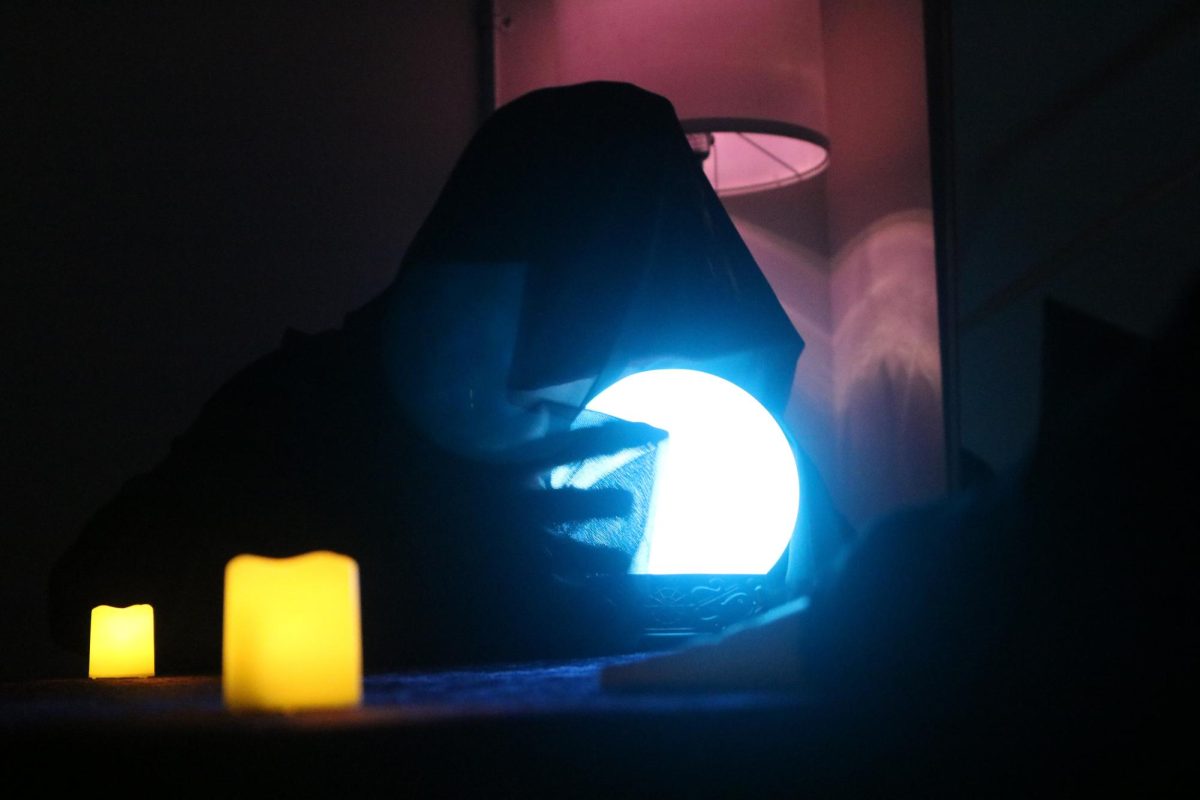Here we go, folks, we’ve reached the last ClickBates review. With all the hectic changes happening recently with the newspaper budget, it has been difficult to find time to review the latest pop culture content. But don’t worry, I have been keeping up to date with recent releases. For my last review, I give you five in miniature form.
The first show I want to start off with is Netflix’s “Delicious in Dungeon.” An anime revolving around the story of a small party braving the dungeon to find a lost team member, who was eaten by a dragon, the show is a wholesome, patient, goofy watch for anyone who wants to lay down on the couch and relax. Each episode has two parts — the four-man party descends into the dungeon and encounters a new enemy, who they usually end up fleeing from, and then the monsters, ranging from coin bugs to golems, are prepared into mouth-watering feasts. Despite being purely in the fantasy genre, the show is anchored, focusing chiefly on the characters who share the screen and their relationships. With each room or floor of the dungeon taking one or more episodes, the show forces the viewer to slow down, temporarily forget their problems, and enjoy life just as the characters do. “Delicious in Dungeon” is still releasing episodes, but 17 episodes and a continuous release schedule make the show a fun binge for food lovers.
Wow, just wow. I had no idea what “Monkey Man” was going to be about before watching it, but there is no way I could have been prepared for this action-packed joyride. Dev Patel plays the movie’s titular protagonist, an underground fighter with a chip on his shoulder towards the Indian elite who propagate the nation’s corruption and discrimination. The film is trippy, playing with choreography, music, social issues and magical realism. It’s a juggling act that still delivers a thrilling non-stop adventure with shockingly nuanced takes on subjects like class and gender. Providing the best original hero and fight sequences since “John Wick,” “Monkey Man” is the heart-pumping, adrenaline-rushing, hair-raising film action fans salivate over.
Jack Black, I love you, but this movie was not it. The story had potential — Po, the famous Dragon Warrior, must set out to find a successor in order to properly replace Master Oogway as “Spiritual Leader.” However, the terrible execution leads me to believe the film was another senseless cash grab. Po’s immaturity feels like a step back from his personal progress in the last films, Shifu is continuously overbearing and does not really have good moments. The additional villain cameos offer no significance to the plot in the final third of the movie. Even the animation, the backbone of the studio, seemed more fit for one of the knockoff shows than another entry in the main series. The villain’s entire motive for being evil was because people judged her because she was small, but this plot point is lackluster compared to the previous films. Also, aren’t Mantis’ and Viper’s origins and struggles about their size and how people perceive them? Their absence in the film is just another glaring flaw in the already rushed and simple film. On a more positive note, the score was dynamic — but Hans Zimmer’s music genius can’t save the dumpster fire that is “Kung Fu Panda 4.”
This show will seem very odd for those unaware of Bethesda’s video game franchise called “Fallout.” The series is set in the same world as the games, but focuses more on a post apocalyptic Southern California. There are 3 protagonists — the naive Lucy who had been raised in the comforts of a vault, the drug-addled, irradiated Ghoul who has lived since the nuclear holocaust 200 years in the past, and the indoctrinated and inexperienced Maximus, a resident of the Wasteland. This quirky cast each have their own goals, but interact and bump into each other frequently. “Fallout” is weird, freaky, unfiltered and erratic, but this is the core of the “Fallout” brand. The show embraces the spirit of the games in its entirety, providing viewers with the full experience of the nuclear anarchy that the games revel in while creating something entirely new. For those looking for something different, something engaging and exciting, then “Fallout” is an ideal choice. But one piece of advice, Amazon — don’t put a cliffhanger at the end of every episode if you are going to drop the entire season at once.
With the show releasing its final episode on April 23, the time has come to give my long-awaited review for the knockout “Shōgun.” Based on the book of the same name, the show takes place during the early 1600s and revolves around two simultaneous plots — one focused an Englishman named John Blackthorne wants to trade with Japan in order to establish an English presence and decrease the Portuguese control over the area, and another focusing on Lord Yoshii Toranaga as he tries to unite Japanese military power and combat the tyranny of the current figureheads who want him removed. The show is historical fiction, but the events — which include conflicts like the one between Catholicism and Protestantism — remain accurate to history. Furthermore, because the characters are loosely based on actual historical figures,, the characters, their motives and the stakes are more fleshed out and understandable. The cast is phenomenal, and it was refreshing watching a show that went to great lengths to portray as much environmental, historical and cultural accuracy as possible. There are 10 episodes in total, but the series takes the time to delve into plots and characters before sending them into brutal conflicts with explosive outcomes. From history buffs to average watchers, this limited series provides an exhibition for everyone on what television is capable of when expressing technique, story and emotion.



















































